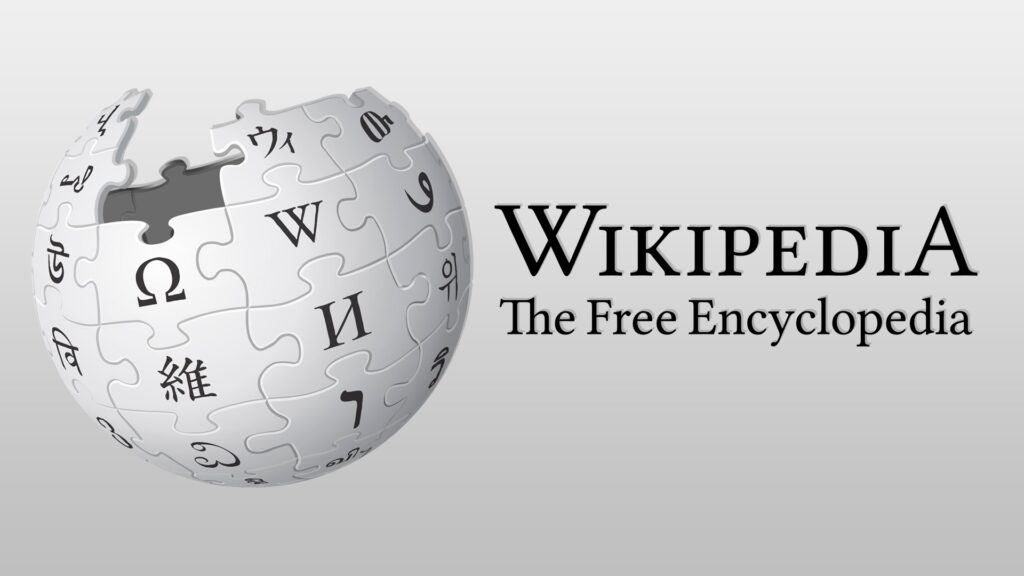Constantly, students are told that Wikipedia is home to unreliable information. Despite being the one website that constantly comes up when doing internet searches, many see the digital encyclopedia as a place that spreads misinformation. This has led students to dig up information from other sites that are deemed to be more accurate. It would be so much easier to just look at Wikipedia for answers all the time, yet we are taught to actively stay away from this free resource. Why is this site such a taboo when it comes to conducting research? It can’t all be incorrect, can it? Disclaimer: Keep in mind that unless stated otherwise, this article doesn’t use Wikipedia for its research.
Image Credit: Wikipedia
Wikipedia’s Origins
In the year 2000, American Entrepreneur Jimmy Wales along with his editor in chief Larry Sanger founded not Wikipedia, but Nupedia. This was there first attempt at creating an online encyclopedia, but it was deemed an ultimate failure. Nearly a year into the website’s launch, hardly any articles were produced. Looking at Wikipedia’s own article of Nupedia, the site was not a wiki, but utilized an “extensive peer review process.” Because each article went under editoral review by, double checking to make the information was accurate, they only had 21 articles actually written!
January 15th, 2001 was when the more well known Wikipedia was launched, the successor to Nupedia. This site saw more rapid growth, with a new process of creating articles. Instead of having an advisory board editing and extensively fact checking each article, anyone could now contribute to them. This solved the problem when it came to the amount of articles being produced each year. Just 5 years into the site’s creation, one million articles had been created, some of which were in different languages.
What Makes Wikipedia “Untrustworthy”?
Although Nupedia shut down in 2003, Wikipedia still goes on today. Even from the very beginning, the idea of a bunch of strangers writing an encyclopedia sounded like a recipe for disaster. After being questioned for Wikipedia’s accuracy, Larry Sanger even left the site and created his own competing encyclopedia, called Citizendium.
So it’s clear that Wikipedia went from an emphasis on more quantity over quality. But what does the site have to say about this? Wikipedia’s own page when it comes to editing their article states “Wikipedia is a wiki, meaning anyone can edit nearly any page and improve articles immediately. You do not need to register to do this, and anyone who has edited is known as a Wikipedian or edit.” Wikipedia outright says that anyone can just edit articles, and therefore those who want to find accurate information to look elsewhere? There have been several times that Wikipedia has been vandalized. People put in information that’s inaccurate on purpose just to start rumors or mislead readers. Even then, who knows how outdated some of the articles are? Wikipedia does say that they have a total of 6,818,902 articles, that’s a lot to keep track of. This then brings up the question if information about Wikipedia is even accurate on Wikipedia?
Several teachers oppose students using the site for these reasons. No one can really be sure and it’s better to be safe than sorry when it comes to researching. A study in 2005 by Nature put Wikipedia’s accuracy compared to Britannica. The study had experts review articles from both encyclopedias, without them knowing which article came from where to avoid bias. The experts found only four major errors from both sites respectively. However, according to Nature, “… reviewers also found many factual errors, omissions or misleading statements…” There were 162 in Wikipedia and 123 in Britannica. Neither encyclopedias are perfect, but Wikipedia has more issues with it.
Conclusion
So everything teachers and students have collectively been talking about when it comes to Wikipedia is true. This has given the Wikimedia Foundation, the organization that owns Wikipedia so much trouble that they have made active efforts to try and reduce errors. This includes the creation of a spambot protection program. But this issue of inaccurate information expands much more than just Wikipedia. This is the internet, where you can post anything practically anywhere! Popular sites such as Youtube and Tiktok have inaccurate and biased information all the time. In fact, it’s arguable that it’s easier to post on those sites than Wikipedia. This goes for any information on any site in general. That is why its strongly recommended that resarchers using Wikipedia, always check the sources on the bottom. They could lead to better information, if anything. Read up on the author of any article on the internet to see how reliable they’ve been. It’s always important to do a fact check. Following this advice, the next time you do a research, will result in an exceptional grade.
Sources:
A Brief History of Wikipedia by Dan Fletcher
Interent encyclopaedias go head to head by Jim Giles
Pillar 2: How We Are Fighting Misinformation and Disinformation
Sources From Wikipedia:
Cover Image:

